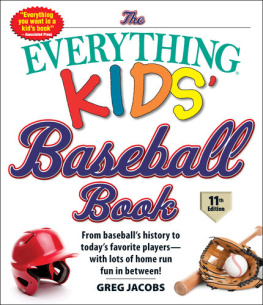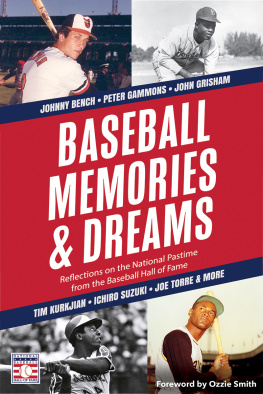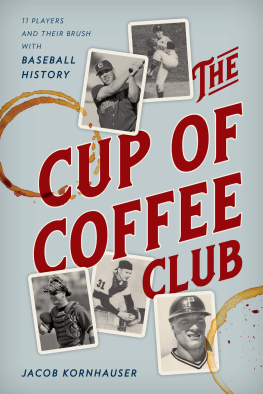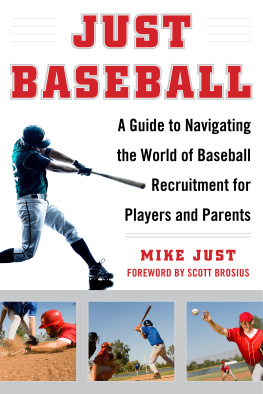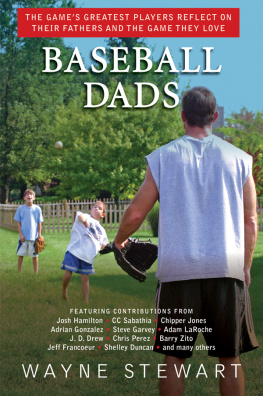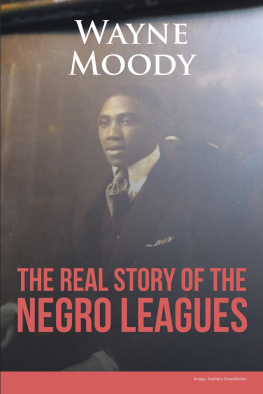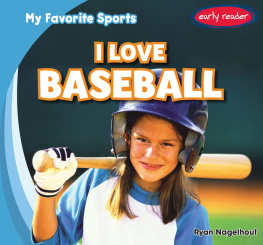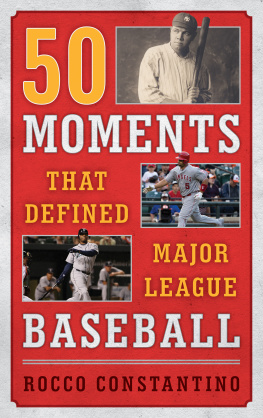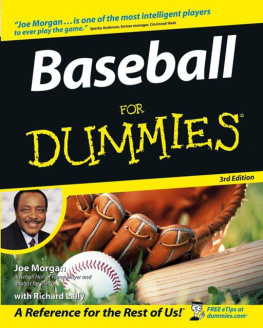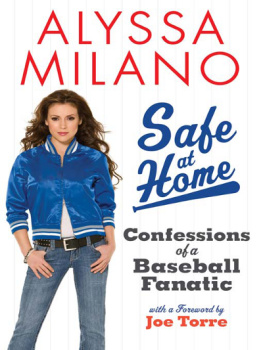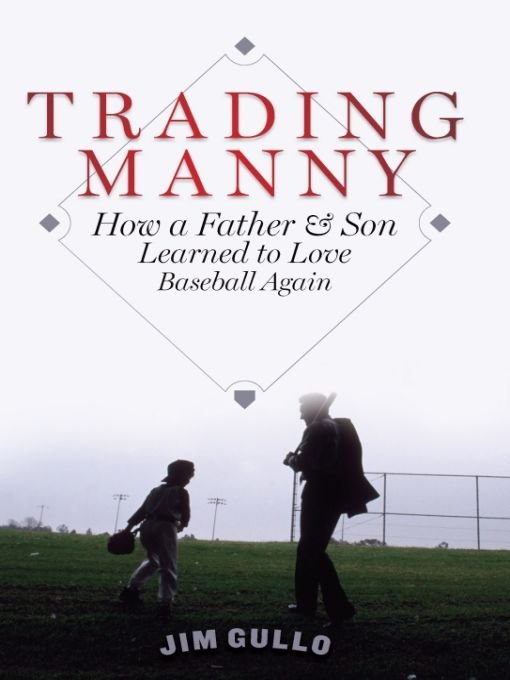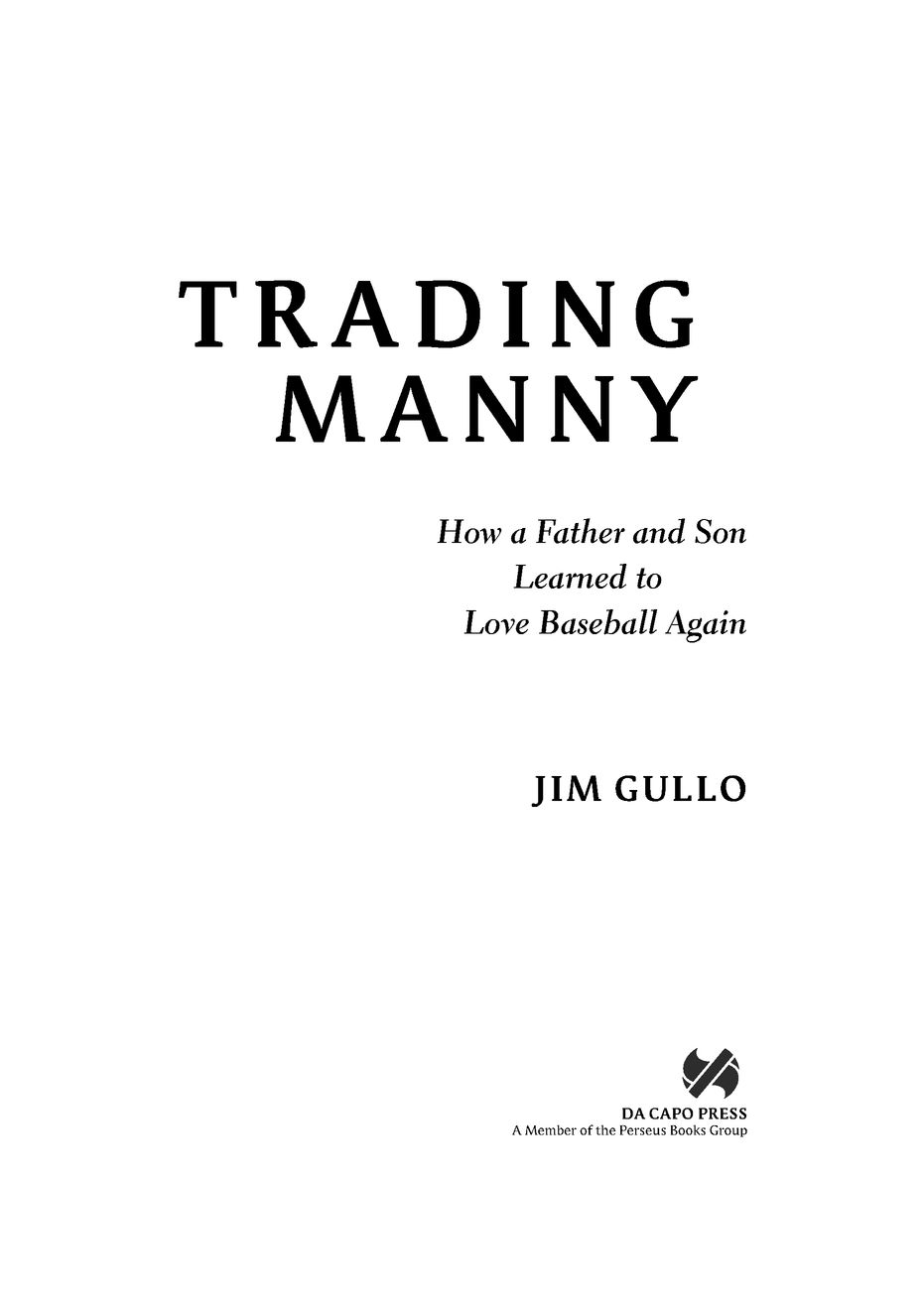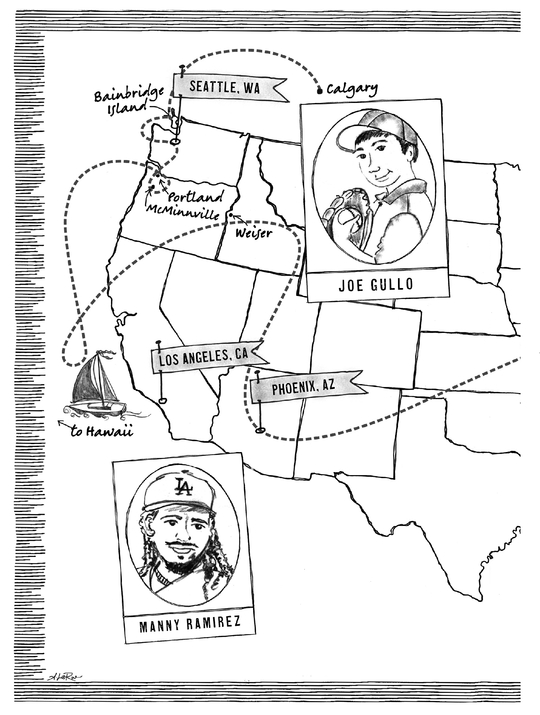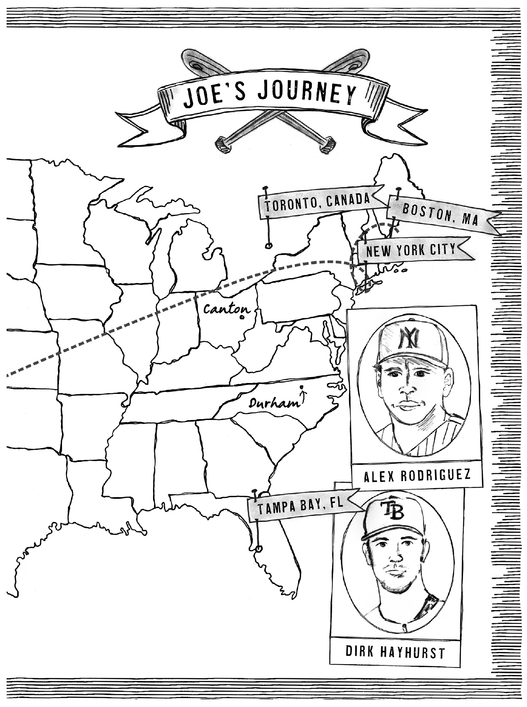Jim Gullo - Trading Manny: How a Father and Son Learned to Love Baseball Again
Here you can read online Jim Gullo - Trading Manny: How a Father and Son Learned to Love Baseball Again full text of the book (entire story) in english for free. Download pdf and epub, get meaning, cover and reviews about this ebook. year: 2012, publisher: Hachette Books, genre: Detective and thriller. Description of the work, (preface) as well as reviews are available. Best literature library LitArk.com created for fans of good reading and offers a wide selection of genres:
Romance novel
Science fiction
Adventure
Detective
Science
History
Home and family
Prose
Art
Politics
Computer
Non-fiction
Religion
Business
Children
Humor
Choose a favorite category and find really read worthwhile books. Enjoy immersion in the world of imagination, feel the emotions of the characters or learn something new for yourself, make an fascinating discovery.

- Book:Trading Manny: How a Father and Son Learned to Love Baseball Again
- Author:
- Publisher:Hachette Books
- Genre:
- Year:2012
- Rating:4 / 5
- Favourites:Add to favourites
- Your mark:
Trading Manny: How a Father and Son Learned to Love Baseball Again: summary, description and annotation
We offer to read an annotation, description, summary or preface (depends on what the author of the book "Trading Manny: How a Father and Son Learned to Love Baseball Again" wrote himself). If you haven't found the necessary information about the book — write in the comments, we will try to find it.
In recent years something hasnt been quite right with baseball. Ask Jim Gullo: hell tell you even a seven-year-old kid knows it. In December 2007, just as Jims young son Joe was beginning to develop a true passion for the game, the bombshell news of players steroid use made it clear that Americas pastime wasnt what it claimed to be. Suddenly, Jim found himself struggling to answer questions from Joe that had nothing to do with batting averages or World Series champions: What are steroids? Who was using them? Wasnt it cheating? Why werent the players who got caught suspended or punished by baseball? While Jim searched for the right words and Major League Baseball dithered, Joe took matters into his own hands: he removed the players who had been named as likely drug users from his prized baseball card collection and created a cheaters pile. Then he created a different category of suspected juicers to keep an eye on. He took these players poster even the poster of his favorite slugger, Manny Ramirez down from his bedroom walls. The steroid scandal had clearly hit home.
Rather than wait for an official explanation and apology from Major League Baseball that would never materialize, Jim and Joe set out to find their own answers. They traveled the country from coast to coast, from Spring Training contests to major and minor league gamesspeaking with players, prospects, and managers while tracking down the legends and ghosts of baseballs golden age. And one day they discovered an aging but dedicated prospect who would become not only a true role model for Joe, but also the unlikely inspiration to lure both father and son back to the game they loved.
By turns humorous, heartbreaking, and inspiring, Trading Manny tells the story of their journey back to baseball how along the way Joe traded his idol Manny for a more worthy hero, and Jim discovered something invaluable about being a father.
Jim Gullo: author's other books
Who wrote Trading Manny: How a Father and Son Learned to Love Baseball Again? Find out the surname, the name of the author of the book and a list of all author's works by series.

